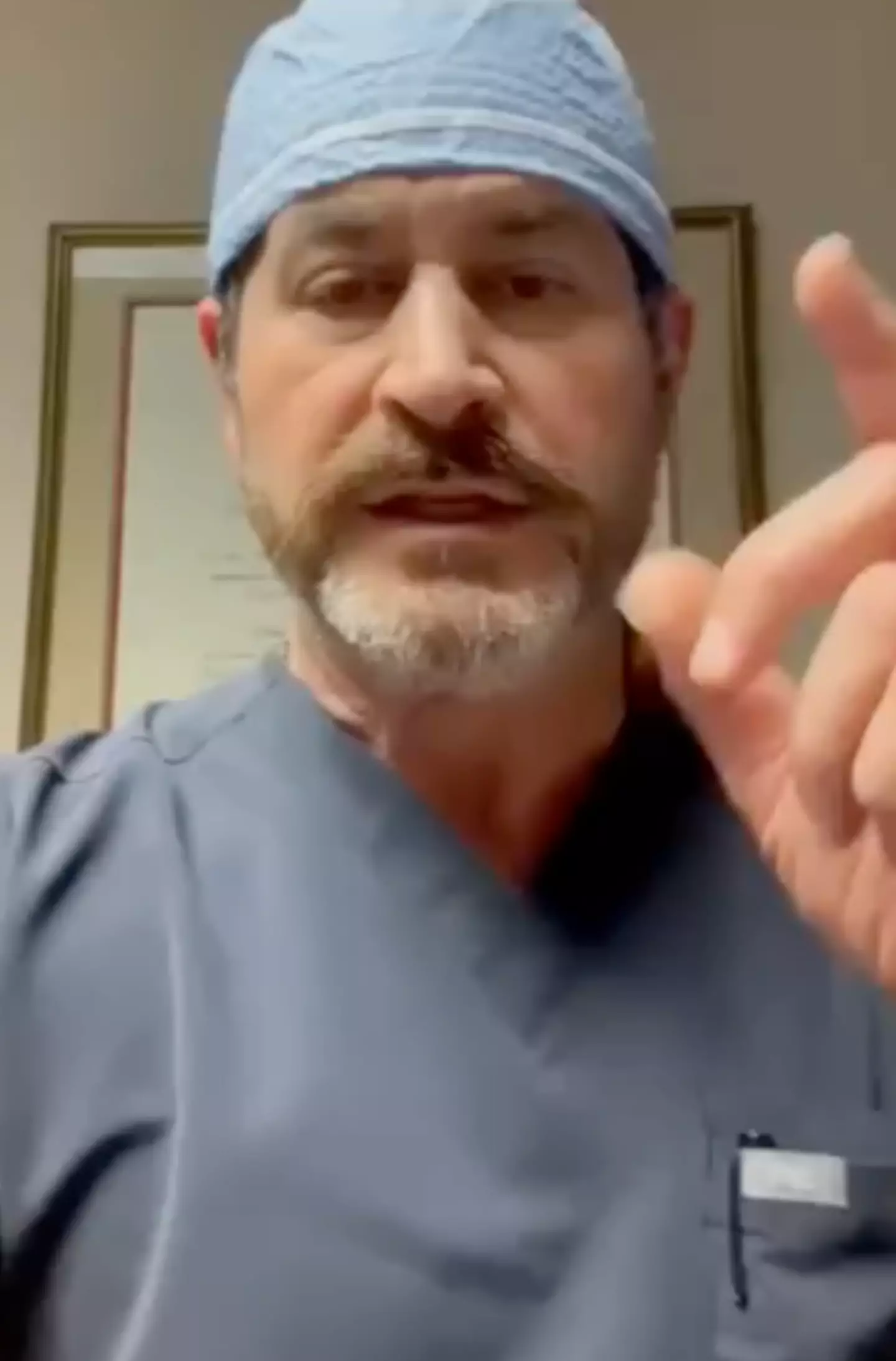Cardiac surgeon Dr Jeremy London has warned people to ‘be conscious about what you’re putting in your mouth’
A heart doctor has revealed the one common daily item he ‘absolutely avoids’ and it’s pretty shocking.
Cardiac surgeon Dr Jeremy London (@drjeremylondon) has lifted the lid on heart and circulatory diseases on his social media pages.
As Brits, it’s important we take note as heart disease causes a quarter of all deaths in the UK, according to the British Heart Foundation.
And the one item the health professional avoids is something that many of us often do in the morning.

Cardiac surgeon Dr Jeremy London has warned people to ‘be conscious about what you’re putting in your mouth’ (YouTube/@drjeremylondon)
The latest government survey showed that 37 percent used mouthwash as part of their dental hygiene routine but Dr London has given two reasons why, perhaps, we shouldn’t.
In one of his YouTube shorts, Dr London says: “Stop using mouthwash. This is one thing that I absolutely avoid as a cardiac surgeon, two reasons.
“Number one, just like the remainder of your gastrointestinal tract, your mouth has healthy bacteria.
“And by killing that bacteria, you injure the environment in your mouth.”
Dr London explains: “There’s a chemical reaction with that healthy bacteria that helps control your blood pressure.
“And by destroying that bacteria in your mouth, you actually can cause high blood pressure.
“High blood pressure is a risk factor for both strokes and heart attacks.”
Dr Zaeem Jafri, from Ordo, has also issued advice on mouthwash use and when you should avoid using the substance.
Dr Jafri said: “Mouthwash certainly isn’t a replacement for brushing your teeth. However, if looking for fresher breath and a quick clean during the day, then mouthwash is perfect.”
He added: “Mouthwash should be used at least 30 minutes before or after brushing. This is because, even though some mouthwash products contain fluoride, it is usually not as concentrated as dedicated fluoride toothpaste.
“Therefore, if you use mouthwash straight after brushing, you’re essentially diluting the fluoride which reduces its protective capabilities.”
The NHS adds: “Using a mouthwash that contains fluoride can help prevent tooth decay, but don’t use mouthwash (even a fluoride one) straight after brushing your teeth or it’ll wash away the concentrated fluoride in the toothpaste left on your teeth.”
Instead, the NHS advises you to ‘choose a different time to use mouthwash, such as after lunch’.
For better dental hygiene, Dr Zaeem also suggested that you change the head on your toothbrush on a regular basis.
“A worn toothbrush or brush head removes less plaque compared to a new toothbrush or brush head,” he said.
“You should be replacing your brush heads every two to three months, this also applies for manual toothbrushes too.
“However, whilst the average is two to three months, if your toothbrush is visibly frayed you should replace it immediately, as worn bristles are less effective at removing plaque and it could be detrimental to your oral health.”
Featured Image Credit: YouTube/@drjeremylondon/Getty Stock Image